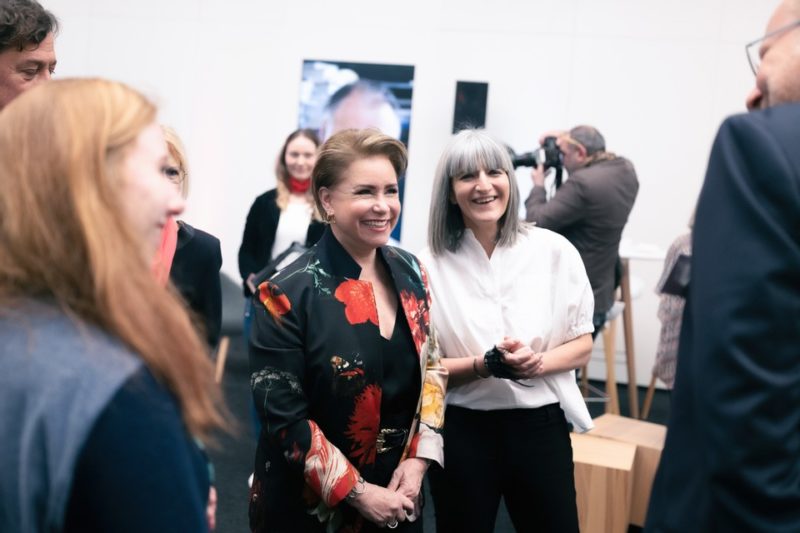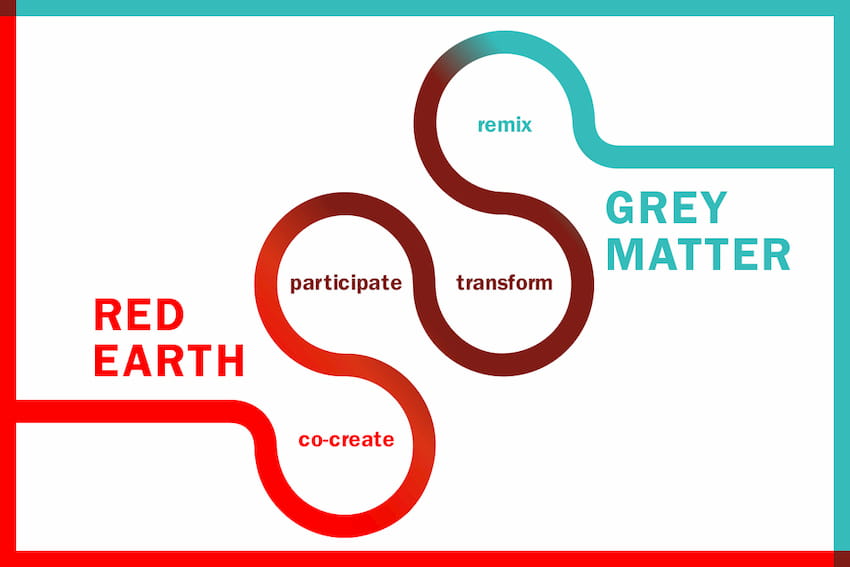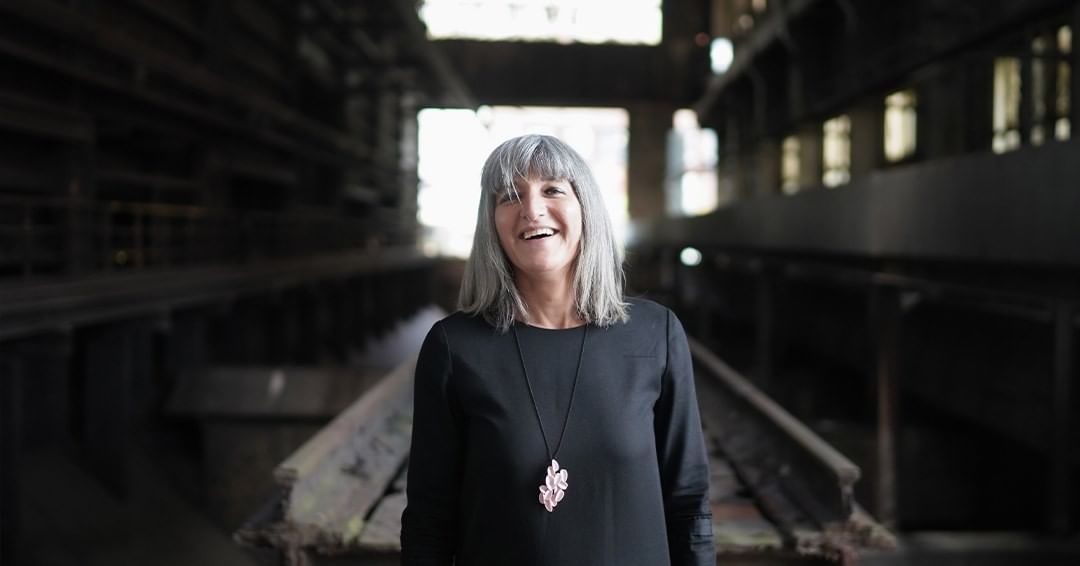Ramping Up Esch2022 – Together We Will Build the Future!
Nancy Braun has been General Director of Esch2022 since 2018. She gained her first professional experience in the cultural field serving as Deputy General Coordinator of Luxembourg and Greater Region, European Capital of Culture 2007, before heading the Supervisory Board of Carré Rotondes. She then held the position of Administrative and Financial Director at the Luxembourg Bar Association for nearly six years, before joining the office of the Luxembourgish Democratic Party (DP) as General Coordinator. In January 2016 she was appointed Administrative Director of Casino Luxembourg – Forum d’art contemporain.
Q: Nancy, you are the General Director of Esch2022. What makes this position so interesting to you?
A: For one, I find it interesting because I like to take on professional challenges. I have a preference for edgy and complex projects. Secondly, this is a very important project and it means a lot to me to be able to lead it. And because it’s a high-priority project, we can address numerous issues that under normal circumstances would take much more time to find their way onto the agenda.
I particularly appreciate the fact that the project has many diverse aspects that I can work on.
Q: What does a typical day at the office look like when planning such a large project years ahead?
A: I’m in contact with many people: mayors, ministers, entrepreneurs, activists, creatives, artists . . . And, of course, a lot of in-house presence and input is also required. I try to organize my entire day so as to avoid chaos. Still, I believe the process is ‘some kind of rock ’n’ roll’, as I like to say.

Grand Duchess Maria Teresa and Nancy Braun at the Press Day Launch “Open Market Days” in February 2020, © Ville d’Esch sur Alzette for Esch2022
Q: Culture is no doubt a particularly gratifying topic for you. Why is culture so important to you?
A: Culture is important to me because it defines what we are and how we live. Culture means so much – because it’s not just about art. For me, it’s about how we develop over time and what we aim for – together. It’s also a powerful driving force that brings together people, cities, regions and countries. That’s precisely what’s so exciting about it. It’s about people, about mutual understanding and living together.
Q: What is the cultural importance of the city of Esch and the surrounding region? Looking ahead to 2022, what does Esch have to offer to the world?
A: Culture has always been an important matter for Esch, and the whole region is a fertile environment for artists and cultural workers, many of whom hail from here. I think that the past and present investments in the city and the region will result in a lot of exciting things happening. Likewise, the region will continue to grow over time because it’s just such a great breeding ground for art and culture. Another exciting aspect is that 120 different nations are living side by side in this region. It’s a huge melting pot of people from different cultures, which will grow over time. The area is just so exciting because so many things can happen here. If Esch2022 succeeds in creating a remix and really bringing people together to create, work and shape the future together, then there is a tremendous potential for the time ahead.
Q: What is your personal vision for the Esch region in 2022 and beyond?
A: My vision is that its image will change. We need to highlight the prospects and potential future developments of the region in order to sharpen its profile. Clearly, the region has a lot to offer, as can be witnessed by what is happening in Esch. The city is bound to develop massively over the next ten years as new residential areas and other facilities are being created. In addition, large companies are looking to settle here because they think in decentralized terms. I think this is a great opportunity for Esch and the region to redefine their profile in the years to come.
Q: When looking at the past and the future of Esch, how would you say has the region evolved historically, from industrial area to cultural capital?
A: I believe the great motto under which Esch2022 is going to be launched, ‘From Red Earth to Grey Matter’, gets to the point of the matter. The city and the region are undergoing a process of constant transformation, which is precisely what our project process aims to reflect. I think that what makes a Capital of Culture interesting in the end is its ability to show how the past can connect with the future. The prosperity of the region was built in the past, and the next step is to reflect on how ‘Grey Matter’ can become the future of the region. A Capital of Culture project like ours is instrumental in embracing all these issues and bringing them closer to visitors, but also to the population at large.

Nancy Braun wants to connect the past with the future through Esch 2022, © battleROYAL for Esch2022
Q: The Grand Duchy of Luxembourg has nearly 600,000 inhabitants, of which 35,000 are living in the municipality of Esch. Who should visit Esch in 2022 and why?
A: In Esch2022, everyone will find something that appeals to them. Our offer ranges from niche projects to large public events and experiences in nature combined with art and culture. We encourage everyone to participate, create or simply be part of it. Because the project reaches out to a broad audience, it’s not only interesting for tourists visiting the country, who might take a day-trip to Esch or the region, but also for the general population of Luxembourg. There is something here for everyone, small, big, young and old.
Q: In terms of the long-term impact of the project, not only on the region, but also on the minds of the people visiting the Capital of Culture 2022, what is the main impression that you want to convey?
A: Above all, I want the inhabitants to be proud of the region in which they live and work. It’s only with their help that we can create a truly positive image of the region. It’s through them that visitors will experience the multifaceted and special nature of Esch. At the end of the day, the most important thing for me is that everyone should sense that there is a future for the region and that it’s a place worth returning to – even if it’s only for a visit.
This article was originally published by Esch2022 – European Capital of Culture on January 12, 2021


